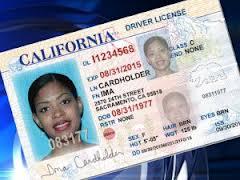Confusion Over Implementation of New Driver’s License Laws Across the US a Major Concern for Undocumented Immigrants

Eleven states and the District of Columbia have now passed laws that allow undocumented immigrants to obtain a driver’s license.
Proponents of such laws are optimistic that the recent surge indicates that more people across the country are becoming aware of the positive role that undocumented immigrants can play in society. Critics have traditionally objected to proposed legislation on the grounds that it rewards those who are here illegally. Advocates have been quick to point out that prohibiting undocumented immigrants from obtaining driver’s licenses has not proven an effective migration control tool. In many jurisdictions, especially those with little or no access to public transportation, undocumented immigrants have no choice to but to drive without a license in order to perform daily activities like getting to work, school, or the grocery store. At a press conference in November 2013, DC Mayor Vincent Gray explained that he signed the Drivers Safety Act because “for many people a car is still a lifeline and we want people to be able to [drive] without being in fear of what the consequences may be.”
A Matter of Public Safety
Advocates for these new laws also stress that allowing immigrants to apply for driver’s licenses is fundamentally a matter of public safety. Shannon Erwin, Policy Director of the Massachusetts Immigrant and Refugee Advocacy Coalition (MIRA), the organization that is leading the push for legislation in Massachusetts, commented that “[i]mmigration status doesn’t belong in a number of areas of state laws. Our state has a responsibility to protect the safety of every driver on the road.” Like other advocates, she maintains that issuing licenses to the undocumented population will make the roads safer because applicants would have to pass a state driving test and obtain auto insurance in order to qualify. In other states such as Maryland, allowing undocumented immigrants to obtain driver’s licenses is predicted to increase revenue because the law further requires the applicant to show that they have paid state taxes for two years prior to application.
Concerns About Implementation of the Law for Immigrants
While immigrant’s rights advocates are generally encouraged by this permissive trend, some are hesitant to celebrate until it is clear how the new laws will work in practice. In California, for example, undocumented immigrants themselves are voicing concerns about how the state plans to implement AB60. In a town hall meeting held in Sacramento on Tuesday, January 28, 2013, stakeholders from around the state gathered to discuss concerns and address areas of confusion. One of the major concerns raised was that the law requires the undocumented immigrant to submit an affidavit to the DMV confirming illegal status as part of the application. Immigrants worried that DMW officials could use this information to report their status to Immigration and Customs Enforcement (ICE), putting them at risk of deportation. Although DMV officials said that they were still in the process of figuring out exactly how to implement the law, they did confirm they do not intend to share application data with federal agencies. Others took issue with the fact that the license for the undocumented will look noticeably different than the license for a legal resident of California and worried that it could be used by local police as an added enforcement tool or a means of discrimination. Advocates will not succeed in changing the appearance of new driver’s licenses because federal law requires that the licenses clearly indicate that they are for “driving privileges only.”
Federal immigration law also prohibits using a state license for an undocumented person as a form of federal identification. In fact, any employer who receives such a license during the hiring process could face criminal penalties for knowingly employing a person who is unauthorized to work in the US. Immigrants should be aware that they cannot use the new license as a List B document for the purposes of I-9 employment eligibility verification. In general, undocumented immigrants should view these new developments with cautious optimism. Immigrants’ rights advocates and private practitioners should pay close attention to the status of legislation in their own jurisdictions, be especially cognizant of local implementation policies as they develop, and counsel their clients accordingly.
